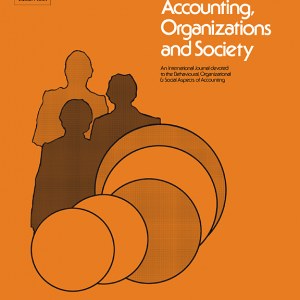
Maas, V. and Yin, H. (2022). Finding partners in crime? How transparency about managers’ behavior affects employee collusion Accounting, Organizations and Society, 96:.
-
Affiliated author
-
Publication year2022
-
JournalAccounting, Organizations and Society
In this paper, we investigate how increasing transparency about managers' treatment of their employees affects the tendency of employees to initiate collusion. Building on behavioral economics theory, we argue that employees who are treated less kindly by their managers are more willing to initiate or join a collusive agreement. We hypothesize that internal transparency affects collusion in two ways. First, by revealing how kindly employees are treated by their managers, transparency increases or decreases the probability that individuals are singled out as potential “partners in crime.” Second, increasing transparency incentivizes managers to treat employees more kindly, which in turn reduces employees{\textquoteright} inclination to initiate collusion. The results of two experiments generally support the theory. We discuss the implications of our study for research and practice.